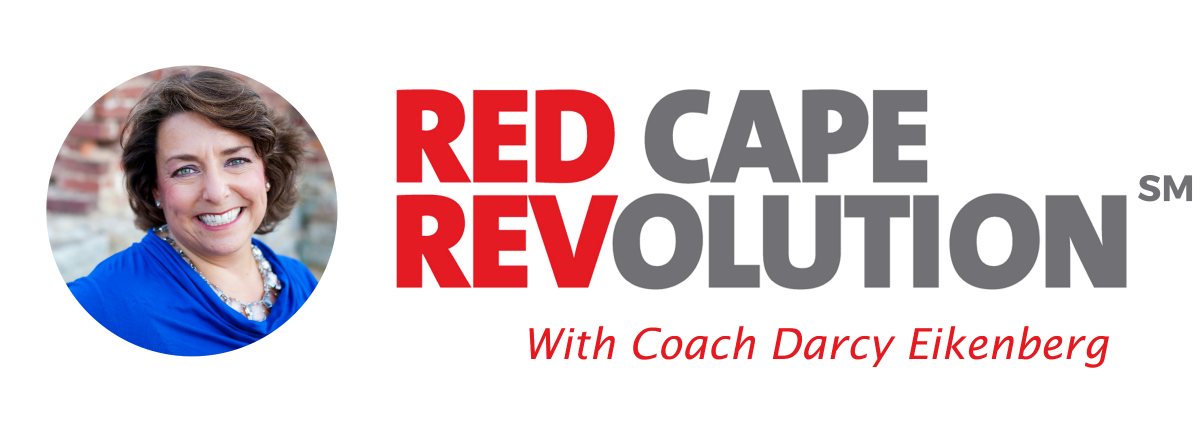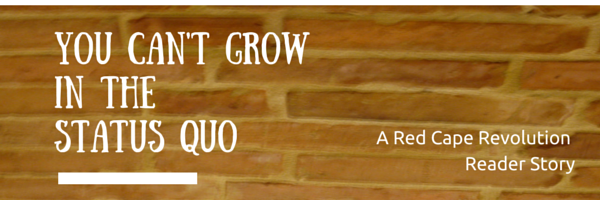Why would anyone leave a great, high-paying, well respected leadership job and put themselves through a stressful, time-consuming search for something new, especially in today’s risky, changing economy?
If you’re not growing, why WOULDN’T you?
This is the question a client of mine answered for herself last year. She bravely shook up her entire work life and started a new position in a totally new industry and company—even after having her second child and feeling the demands of busy family life.
Based on the questions you’ve sent me, I know many of you are in her shoes—great job “on paper,” but not really feeling successful anymore and worried about taking a risk to leave a place where you’ve succeeded in the past. So I asked her if she’d answer a few questions on your behalf—and she graciously agreed.
Note: As we did in another recent post by one of our readers, I’ve opted to keep this client’s name private to avoid any undue attention to herself, her family or her past and current employers. What’s valuable here is the experience and thought processes she put into this change, and I hope it inspires your next move to get career clear, too.
You decided to leave a job where it looked from the outside that you were successful and on the fast track.
What were the one or two reasons why you decided it was time for a change?
It depends on how you define success. For me, success is about being part of a highly engaging work environment where your contributions are noticed and rewarded and you feel a part of team bonded by a common purpose.

Achieving at work can’t conflict with your personal goals, however, and what you’re trying to accomplish outside of work. My former company was going through a culture shift where it was less and less about being part of a strong team and more about the individual.
While I was in a leadership role, I found myself stricken by the new delivery model, essentially to do more with less. At the same time, the demands on my personal life were greater as we were expanding our family.
Something had to give and I chose what was best for me at the time: a new gig.
Tell us about your search for what was next in your career. What surprised you?
What was easier than you expected, and what was hard?
The hardest thing about the search was the decision to leave my current role, as I hadn’t changed jobs in nearly a decade. 
With your help, I was able to get clear about what I wanted in a new opportunity. That was a very important step in the process as it helped me weed through the job postings and get focused.
There’s also a rhythm that you get into. Recruiters ask the same questions, so once you know your story, it gets easier to tell.
Plus, when you’re searching while still employed, the pressure is gone. I had a pretty flexible timetable for making a change.
You started a new job with a well-respected company.
What was the one thing you did to help you get off to a good start?
I eased into it. I didn’t have unrealistic expectations for myself in the first 90 days. I just wanted to learn as much as I could about the business and the people.
Looking back, what’s one thing you wish you had done differently or would have known before starting your new job?
Read the tea leaves. What I didn’t know is that one of the top executives for the company was retiring in my first 60 days so the  company was about to undergo even more change and I would be directly impacted.
company was about to undergo even more change and I would be directly impacted.
In retrospect, there were a couple things I would have done differently in the interview. I would have asked the hiring manager, “What’s on the horizon that could impact the team?” I would have asked to meet one on one with more team members, not just the people they want you to interview with, to get a better sense of the company’s culture.
I’d also have a plan to reevaluate the position and how I’m feeling about it after 30 days, 90 days and six months, etc. That first year is so critical.
Looking back though, the best way to prepare, is to have an open mindset and be flexible, and ready for anything.
Anything else you learned during this transition that you want others to know or pay attention to?
There’s no growth in status quo. If your gut is telling you to leave, then do it.
Is it risky? Yes! But there’s no happiness without risk. There’s a lot of energy you get from taking control of your circumstance and being proactive about changing it to benefit you.
You deserve it. Never look back.
YOUR TURN: Have you taken a big risk in your career by shaking up the status quo? Tell us about it in the Comments below, or ask your questions, too. And thanks!




[…] I’ve opted to keep her last name private, as I have with some of your other stories in the past. I know your career struggles and hard-won learnings can be a tricky matter and can […]